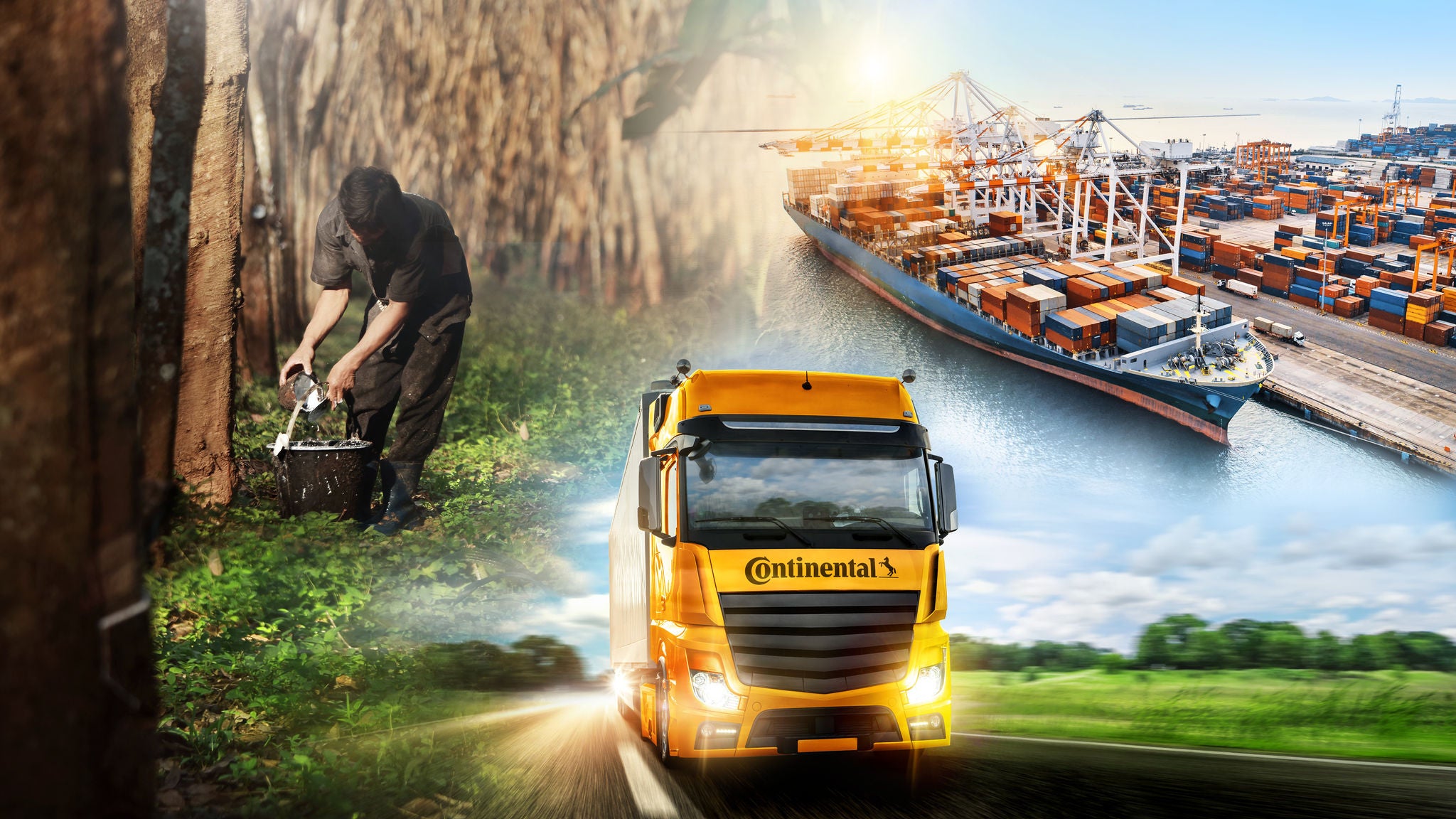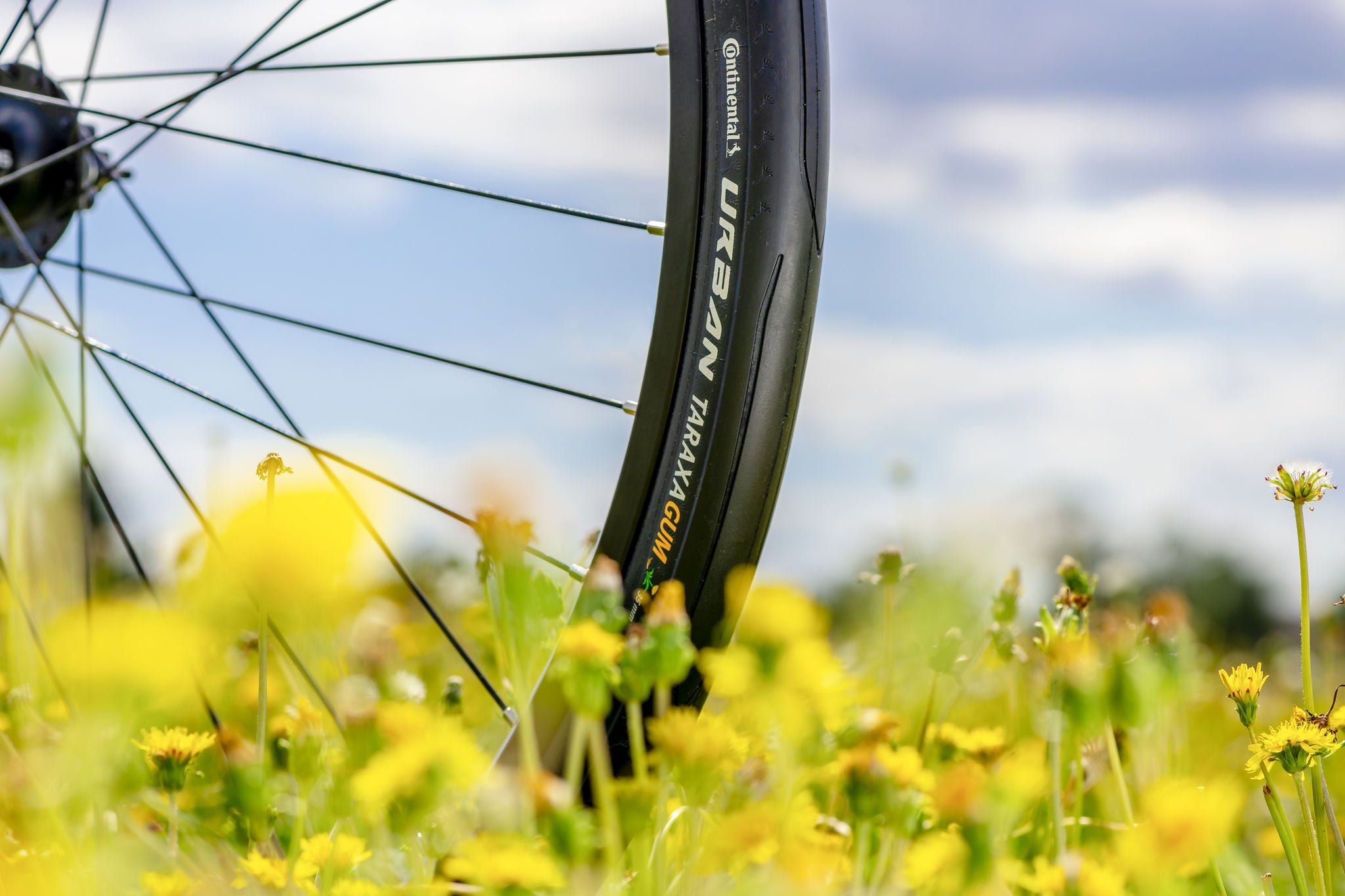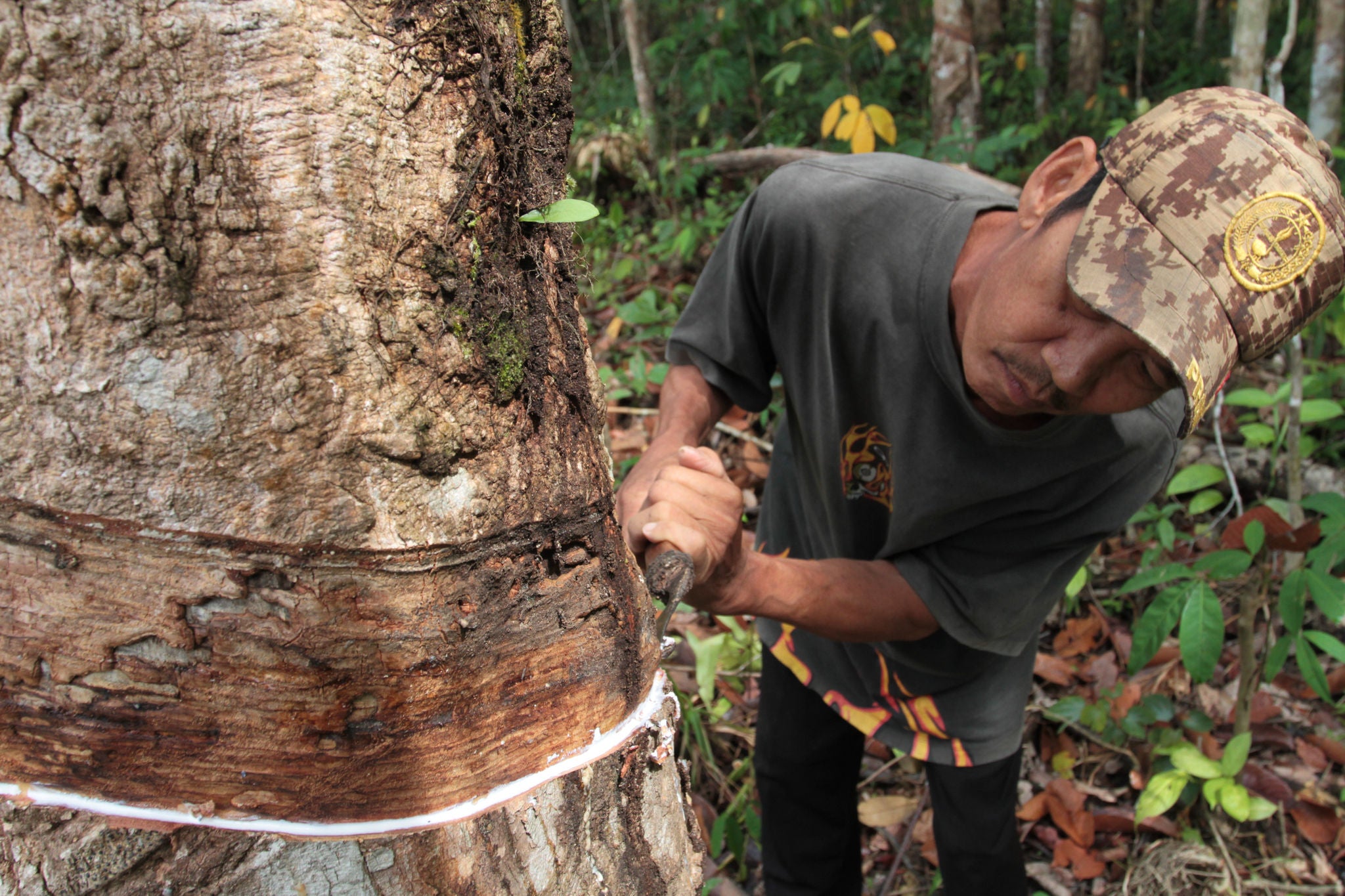
Visit Continental Tires in your country for local vehicle fitment
Material Sourcing
Responsible Value Chain

Continental pursues a holistic approach to make the complex and fragmented supply chains for natural rubber more sustainable: The latest digital technologies, local involvement in the cultivation of rubber, and close cooperation with strong partners are aimed at creating more transparency along the entire value chain.
Natural rubber is still essential for ensuring outstanding tire performance. This natural product accounts for between 10 and 40 percent of the entire weight of modern, high-performance tires. The special properties of natural rubber include the high level of strength and durability caused by the strain-induced crystallization of the rubber. Natural rubber is currently obtained almost exclusively from the rubber tree Hevea Brasiliensis.
Continental's ambition is to source all natural rubber for its tire production from responsible sources from 2030 onwards. In order to achieve this, Continental is particularly pressing ahead with increasing the transparency of supply chains. Innovative technology, digitalization, education projects, and systematic risk mapping are the main tools that Continental uses to make supply chains more sustainable.
Natural Rubber from Dandelions: Taraxagum
Natural rubber is a raw material that is used in more than 50,000 products, according to the Fraunhofer Institute. At 73 percent, the tire industry is the biggest consumer of global rubber production. Due to the high global demand for natural rubber, Continental is looking for more ways to extract natural rubber. Together with partners, the tire manufacturer has therefore been researching innovative sustainable materials such as natural rubber from dandelions for years.
The central goal of Continental’s Taraxagum project is for natural rubber no longer to be imported exclusively from the tropics in the future and to be produced as close as possible to the tire plants. In this way, further deforestation is to be prevented and CO2 emissions reduced by means of shorter transportation distances.

Responsibly Sourcing of Natural Rubber from Indonesia: Partnership with GIZ
As part of a development partnership with the German development aid agency Deutsche Gesellschaft für Internationale Zusammenarbeit (GIZ), Continental is getting involved right at the start of the supply chain in Indonesia, the world’s second biggest producer of natural rubber. Production there is carried out mainly by independent smallholders. More than 2.5 million Indonesian farmers cultivate around 85 percent of the country’s growing areas.

The farmers mostly live scattered around remote areas, making it difficult to reach them with offers for advice and training. Through the joint development partnership, smallholders are being trained locally in sustainable cultivation practices. This is helping them to cultivate a high-quality raw material in compliance with clearly defined sustainability criteria. The enhanced quality of the natural rubber is expected boost the incomes of those involved in the project while helping to prevent deforestation.
Since July 2022, all newly produced tires in Continental's "Gravity" mountain bike product line contain responsibly sourced natural rubber from this project.
Sustainable Natural Rubber Sourcing Policy
In its Sustainable Natural Rubber Sourcing Policy, Continental sets out clear responsibilities and obligations for itself and all suppliers and service providers along the entire value chain for natural rubber. Its sustainable sourcing policy is intended to minimize risks in connection with the environment, human rights, and society.

Sustainable Natural Rubber Sourcing Policy
Sustainable Natural Rubber Sourcing Policy
pdf 905 KB DownloadSelected Activities
RubberWay is a joint venture between Continental, Michelin and software developer SMAG that specializes in developing technological solutions to the problem of mapping sustainability practices in the value chain for natural rubber.
The objective is to identify potential risks in the supply chain at an early stage. An app gathers and then evaluates data on potential environmental impacts as well as on social and human rights risks. The findings form the basis for minimizing social, human rights, environmental and economic risks along the supply chain.
With RubberWay, Continental and its joint venture partners are supporting wider use of responsible business practices in the natural rubber industry. The joint venture and its concept are in line with the goals of the Global Platform for Sustainable Natural Rubber (GPSNR). As a founding member of the GPSNR, Continental works with other partners to further increase traceability in the value chain for natural rubber.
Since 2011, suppliers and service providers working with Continental have been required to respect the Code of Conduct for the company’s business partners. This covers ethical, social and environmental aspects. Our objective is to minimize environmental risks and emissions as well as social and human rights risks.
To allow us to assess the sustainability performance of suppliers, we have been working with EcoVadis since 2017 and regularly conduct sustainability audits on our suppliers. EcoVadis is the world’s leading provider of sustainability ratings for companies and global supply chains.
Continental is a founding member of the Global Platform for Sustainable Natural Rubber (GPSNR), a multi-stakeholder initiative.
The GPSNR works to develop and harmonize policies for better maintaining human rights along the value chain for natural rubber, preventing land-grabbing and protecting biodiversity and water resources. It also aims to achieve better yields and to make supply chains more transparent.
The stakeholders in the GPSNR reflect the complex global supply chain, ranging from natural rubber farmers and rubber manufacturers to companies that process rubber, dealers, tire manufacturers, automobile manufacturers and civil society.
Continental and Security Matters (SMX) have succeeded for the first time in verifying beyond doubt a marker substance for natural rubber in a tire and so throughout the entire production process.
In the successful field trial, the marker substance passed a real test of resilience. The substance was added to sustainably grown latex during harvesting and withstood not only the intensive treatment methods involved in the production of natural rubber but also the tire manufacturing process itself. In the finished tire, the data was retrieved using special, purpose-built software and a reader and correctly interpreted. The appearance and performance of a bicycle tire containing the invisible marker remained unchanged. The special marker technology, which both companies optimized for use in natural rubber, is designed to create greater transparency along the entire value chain for tires and technical rubber products from Continental.
Security Matters (SMX) is an innovative technology platform specializing in digital tracking using tamper-proof, chemical-based barcodes.
To make sure that it sources its natural rubber from responsible sources, Continental uses Agridence, formerly HeveaConnect, a digital trading platform.
It offers clear and standardized information regarding compliance with social and environmental standards, quality criteria and average sales prices. The platform also provides the option to incorporate information from the analyses conducted by the RubberWay joint venture.
This platform is helping to establish a more sustainable and transparent supply chain for natural rubber.
More about Material Sourcing
-
 2024/03/07TaraxagumWe believe that extracting natural rubber from dandelion is a crucial step in the tire industry.Read more
2024/03/07TaraxagumWe believe that extracting natural rubber from dandelion is a crucial step in the tire industry.Read more -
 2023/10/25Sustainable MaterialsThe materials affect the tires and its driving characteristics. Find out more about the sustainable materials we use in our tires.Read more
2023/10/25Sustainable MaterialsThe materials affect the tires and its driving characteristics. Find out more about the sustainable materials we use in our tires.Read more -
 2023/06/28Partnership with GIZAs part of the development partnership with GIZ, Continental starts at the source of the supply chain and is involved in Indonesia.Read more
2023/06/28Partnership with GIZAs part of the development partnership with GIZ, Continental starts at the source of the supply chain and is involved in Indonesia.Read more
